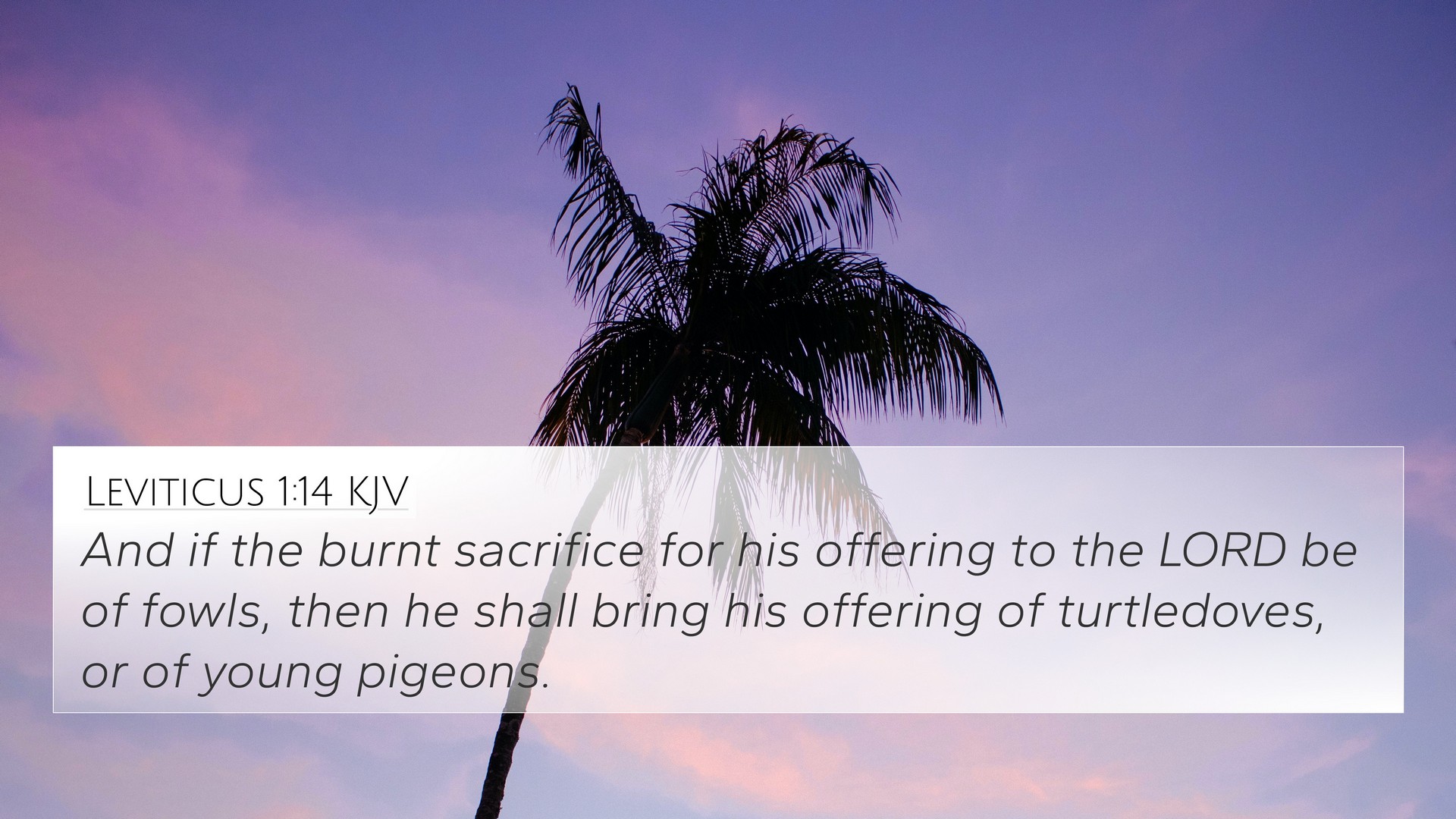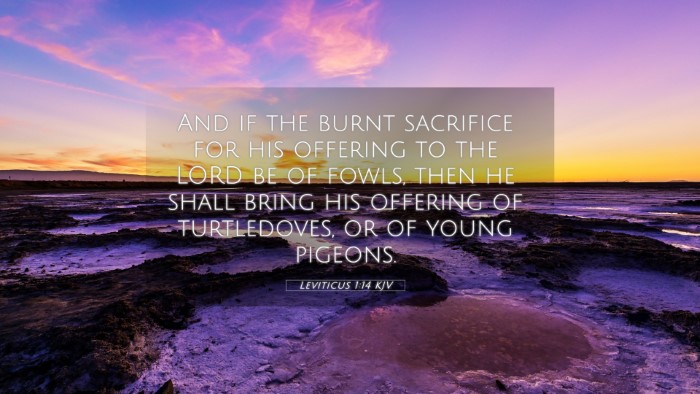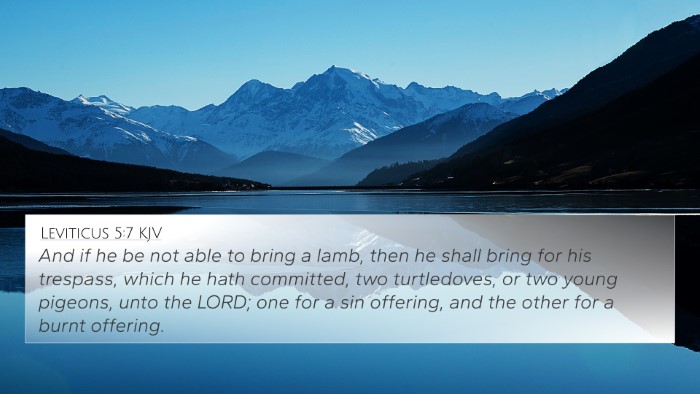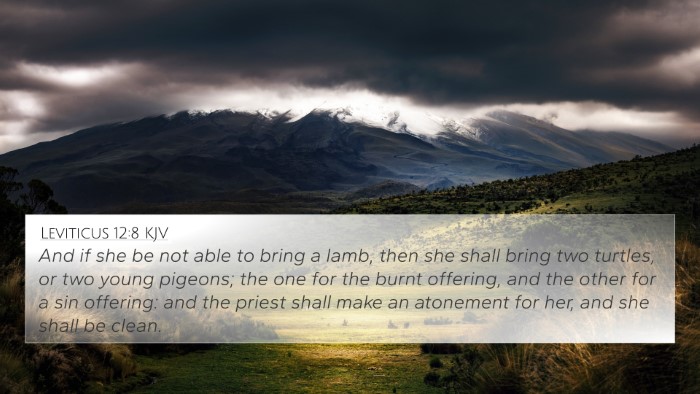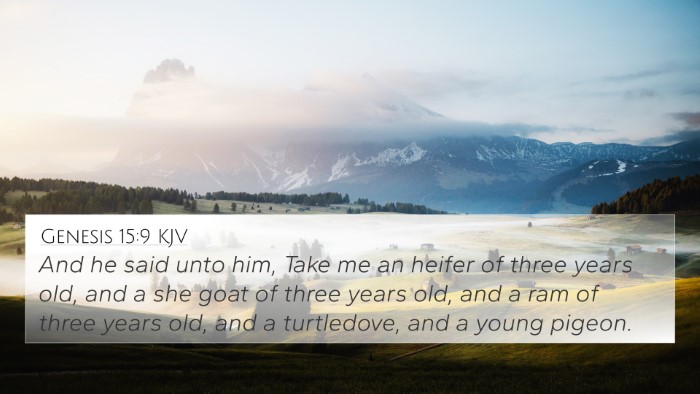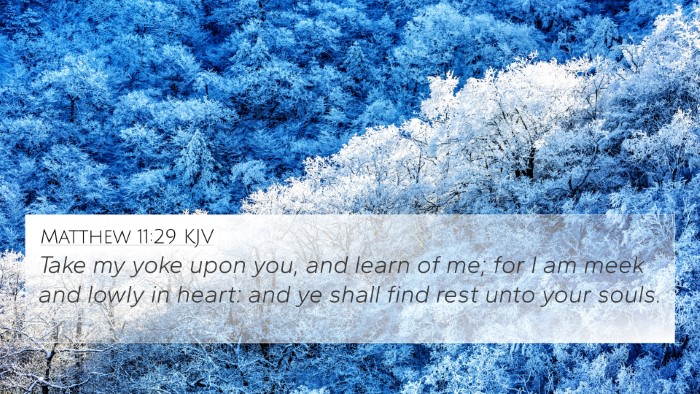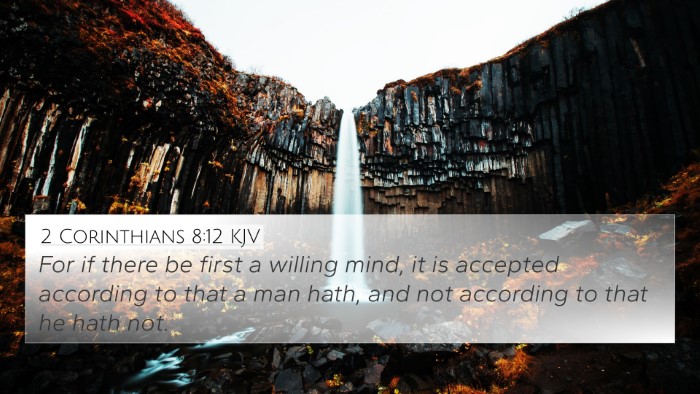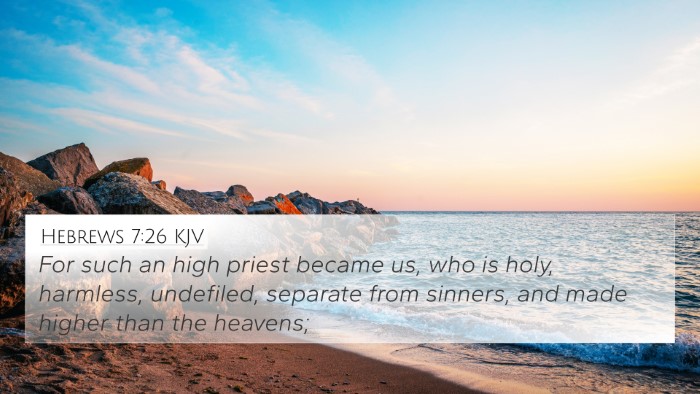Understanding Leviticus 1:14
Bible Verse: Leviticus 1:14 - "And if the burnt offering for his offering to the LORD is of birds, then he shall bring his offering of turtledoves or of young pigeons."
Verse Meaning and Interpretation
Leviticus 1:14 presents specific instructions for offerings that were to be brought to God as part of the sacrificial system. In the context of ancient Israel, burnt offerings expressed devotion, atonement, and thanksgiving to God.
This verse signifies God's provision for all people, regardless of their financial status. The option to offer birds, instead of larger animals like cattle or sheep, demonstrates that accessibility to worship and atonement was made possible for even the poorest individuals in society.
Insights from Public Domain Commentaries
Matthew Henry's Commentary
Matthew Henry emphasizes the importance of the humble offerings of the poor. He notes that God's acceptance of turtledoves and young pigeons illustrates His mercy and consideration for the less fortunate, allowing them to participate in the covenant community without financial burden.
Albert Barnes' Notes on the Bible
Albert Barnes provides insight into the symbolism of the birds used in sacrifices. He points out that the turtledove, often associated with peace and purity, reflects the seeker’s desire for reconciliation and acceptance before God. The sacrificial process represents a necessary step in seeking atonement for sin.
Adam Clarke's Commentary
Adam Clarke discusses the requirement of the offerings, highlighting the spiritual significance of sacrificing one's possessions as an act of worship. He reflects on how this act not only signifies obedience but serves as a means to cultivate a heart of gratitude and dependence on God.
Bible Cross References
- Genesis 15:9 - God instructs Abraham to bring specific animals as offerings.
- Leviticus 12:6-8 - Instructions for purification offerings, connecting with provisions for the poor.
- Matthew 5:24 - Jesus emphasizes reconciliation before making an offering, linking sacrifice with right relationships.
- Numbers 6:10-11 - Another instance of offerings, reinforcing the theme of sacrifice.
- Isaiah 1:11-17 - God questions the value of offerings that lack obedience and righteousness.
- Luke 2:24 - Mary and Joseph offered two turtledoves at Jesus’ purification, showing the fulfillment of the law.
- Hebrews 9:22 - The significance of blood in atonement, connecting with the burnt offerings.
Thematic Bible Verse Connections
Leviticus 1:14 can be analyzed through the lens of various biblical themes:
- Worship and Sacrifice: Understanding how God desires a heart attitude behind sacrifices.
- Divine Mercy: The provisions for the poor reflect God's compassion and accessibility.
- Atonement: How the sacrifices foreshadow the ultimate sacrifice in the New Testament.
- Obedience: The importance of following God's instructions in worship.
Comparative Bible Verse Analysis
In the context of the Bible, Leviticus 1:14 reveals several parallels and dialogues across scripture:
- Jeremiah 7:21-23 reinforces obedience over sacrifice.
- 1 Peter 2:5 portrays believers as living sacrifices.
- Romans 12:1 further emphasizes the sacrificial nature of worship in the New Testament context.
Tools for Bible Cross-Referencing
When studying Leviticus 1:14, it may be beneficial to utilize:
- Bible Concordance: For finding words and themes related to sacrifice.
- Bible Cross-reference Guide: To connect this verse with others discussing offerings.
- Bible Chain References: A method to trace themes and connections through various books.
User Intent Keywords
For those seeking deeper understanding:
- What verses are related to Leviticus 1:14?
- How do 1 Peter 2:5 and Leviticus 1:14 connect?
- Bible verses that support the concept of sacrificial offerings.
Conclusion
Leviticus 1:14 serves as a critical reminder of God's desire for worship that comes from the heart. Through both the Old and New Testaments, the themes of sacrifice, mercy, and reconciliation resonate deeply, demonstrating the importance of approach to God with a humble and grateful spirit.
